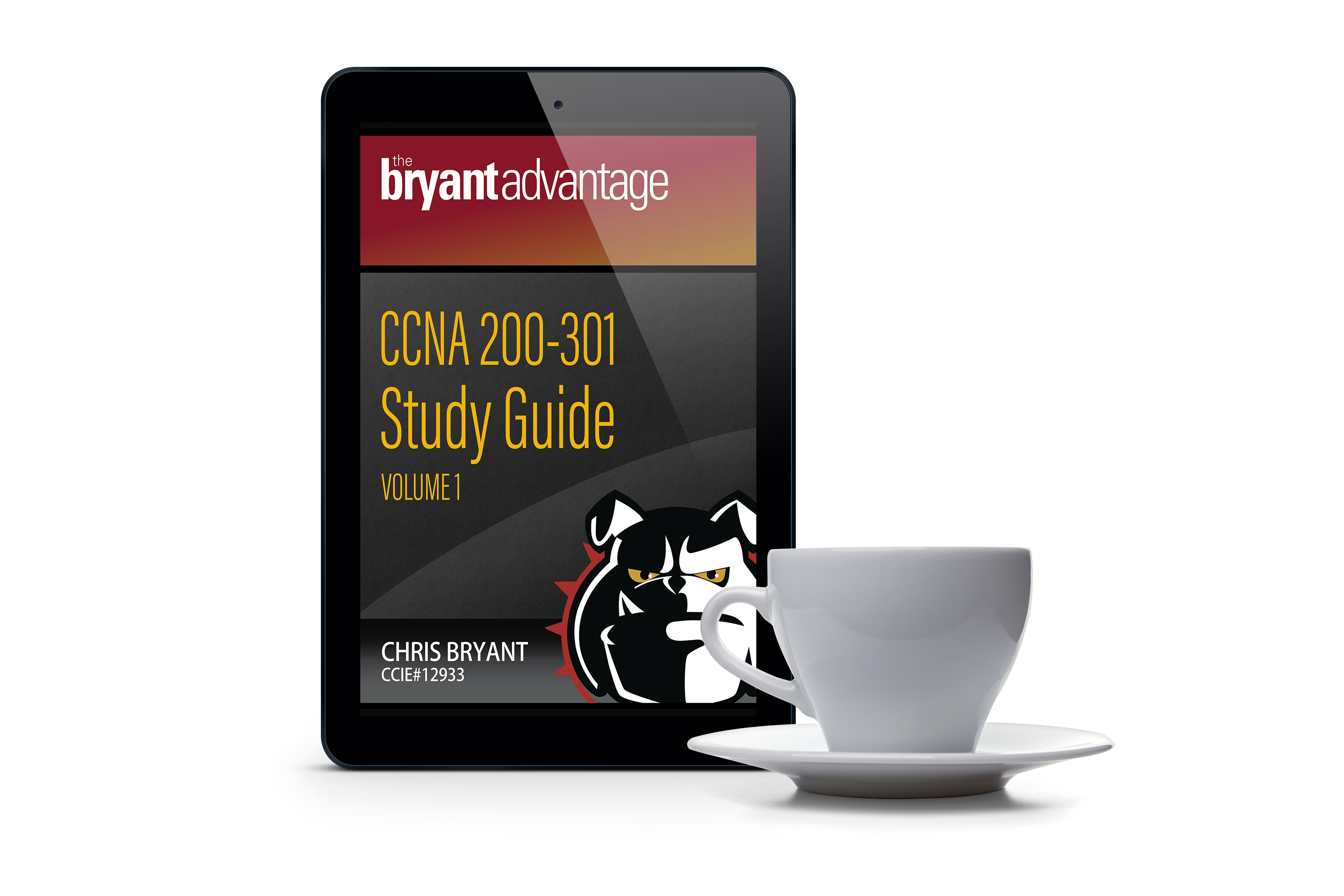CCNA 200-301 Practice Exam: IP Version 6
Hi there!
Welcome to today’s CCNA 200-301 Practice Exam! I’m posting new exams regularly over on my main CCNA Practice Exam page (daily in Nov and Dec 2020!) so head over there and take some more exams while you’re here!
And now… let’s get started on today’s exam! We’ll go with IPv6 fundamentals today – the building blocks of success on the exam and in real-world networking.
Question 1:
How many times can you perform leading zero compression in a single IPv6 address?
A. As often as you like.
B. Only once.
C. Twice.
D. You cannot perform this type of compression in an IPv6 address.
Question 2:
Which of these DHCP message types is found in both DHCP for IPv4 and IPv6?
A. Discover
B. Offer
C. Request
D. Acknowledgement
The next two questions are “flash card style” — no choices given.
Question 3:
What is the tightest legal address compression of the following IPv6 address ?
2001:1111:2222:0001:0000:0000:0000:0001 /64
Question 4:
What is the uncompressed version of the following compressed IPv6 address?
FE80::21B:D4FF:FEC2:990
Question 5:
When you see the following prefix, what type of IPv6 address are you dealing with?
FE80:0000:0000:0000
A. Multicast
B. Broadcast
C. Unicast
D. Global Routing
E. Link-Local
F. Unit-Local
Coming In January 2021….in paperback and Kindle!

Let’s have a look at the answers — and when you’re done here, check out my YouTube channel! I’m adding new CCNA and Network+ videos regularly, and DevNet certification videos begin in December 2020.
Chris Bryant’s CCNA YouTube Channel
Answer 1: A — As often as you like.
You can perform leading zero compression as many times as you want in an IPv6 address, but you can only perform zero compression once.
Answer 2: C –– Request.
The DHCP Request is the only DHCP packet type that appears in both IPv4 and IPv6 (stateful DHCPv6, to be exact).
Answer 3: The full IPv6 address 2001:1111:2222:0001:0000:0000:0000:0001 /64 can be compressed to 2001:1111:2222:1::1 /64. Here’s a breakdown of that process:
Blocks 1 – 3 are left alone.
Block 4 is compressed from 0001 to 1 via leading zero compression.
Blocks 5, 6, and 7 are replaced with a double colon via zero compression.
Block 8 is compressed from 0001 to 1 via leading zero compression.
Answer 4: The uncompressed version of the compressed address FE80::21B:D4FF:FEC2:990 is FE80:0000:0000:0000:021B:D4FF:FEC2:0990. Be sure you’re comfortable with compressing and uncompressing IPv6 addresses before you take the exam!
Answer 5: E — Link-Local Address. All such addresses will begin with FE80:0000:0000:0000.
That’s it for today! See you tomorrow with another new CCNA practice exam – and please join me on Twitter for daily CCNA and Network+ exam tips!
Chris Bryant, CCIE #12933 On Twitter
CCNA Quick Quiz: SSH Configurations
CCNA Practice Exam: OSPF Stuff
CCNA Practice Exam: Cisco Router Timers





